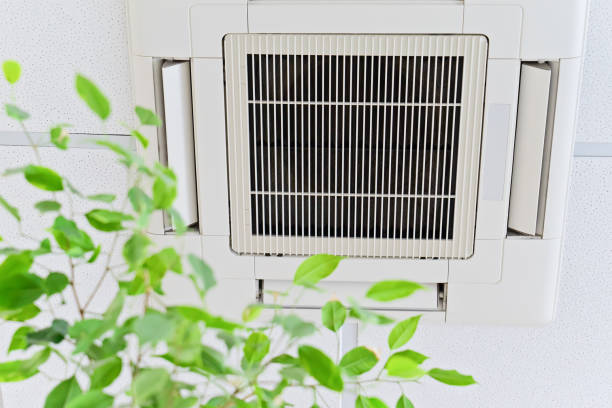Heating, ventilation, and air conditioning (HVAC) systems are essential to maintaining a comfortable indoor environment in commercial buildings. According to experts, businesses face unique challenges when it comes to HVAC systems due to larger spaces, higher occupancy density, and the need for more sophisticated systems. Commercial buildings require special considerations and best practices to ensure optimal performance, energy efficiency, and cost savings. So before you go and search for American Standard air conditioner prices, read on for the practices you need to utilize to keep your operation running smoothly.
1. Regular Maintenance
Regular maintenance of HVAC systems is crucial to keep them running efficiently and effectively. Maintenance includes cleaning or replacing air filters, inspecting and cleaning ductwork, checking for refrigerant leaks, and ensuring that all components are functioning correctly. Regular maintenance ensures that the system runs smoothly, reducing the likelihood of breakdowns and the need for expensive repairs. It also helps extend the life of the equipment, saving businesses money in the long run.
2. Zone Control
In commercial buildings, there are often different areas with different temperature and humidity requirements. Zone control allows businesses to customize the temperature and humidity settings in different zones, optimizing comfort and energy efficiency. This can be achieved through the installation of multiple thermostats, dampers, and sensors that work together to control the HVAC system in different zones.
3. Smart Controls
Smart controls allow businesses to control their HVAC systems remotely, enabling them to adjust the temperature, humidity, and other settings from anywhere using a smartphone or computer. Smart controls can help businesses optimize energy usage, reduce costs, and increase comfort levels for employees and customers. Additionally, smart controls can provide data and analytics to help businesses make informed decisions about their HVAC systems.
4. Energy Efficiency
Commercial buildings are notorious for their energy consumption, and HVAC systems play a significant role in this. Businesses can reduce their energy consumption by upgrading to energy-efficient HVAC systems, installing programmable thermostats, and conducting regular energy audits. Additionally, businesses can consider alternative energy sources such as solar power, geothermal heating, and heat recovery systems to further reduce their carbon footprint.
5. Indoor Air Quality
The quality of indoor air is critical to the health and well-being of employees and customers. Poor indoor air quality can lead to health issues such as headaches, allergies, and respiratory problems. Businesses can improve indoor air quality by installing air filters, controlling humidity levels, and conducting regular cleaning and maintenance of HVAC systems. Additionally, businesses can consider the use of air purifiers and ventilation systems to further improve indoor air quality.
6. Emergency Preparedness
HVAC systems are critical to maintaining a safe and comfortable indoor environment, especially during extreme weather conditions. Businesses should have an emergency preparedness plan in place to ensure that their HVAC systems are ready to handle emergencies such as power outages, extreme temperatures, and natural disasters. This includes having backup generators, emergency HVAC repair services, and an emergency response plan in place.
7. Regular Inspections
Regular inspections of HVAC systems are essential to identify and address any potential issues before they become major problems. Businesses should conduct regular inspections of their HVAC systems to ensure that they are running efficiently, and to identify any potential issues that may require repair or replacement.
HVAC systems are critical to maintaining a comfortable and healthy indoor environment in commercial buildings. As businesses face unique challenges, it is essential to implement special considerations and best practices for HVAC systems. By paying attention to these areas, businesses can ensure optimal performance, energy efficiency, and cost savings while creating a comfortable and healthy environment for employees and customers. Ultimately, investing in HVAC systems is a sound investment in the long-term success and sustainability of commercial buildings.
Map Link:
